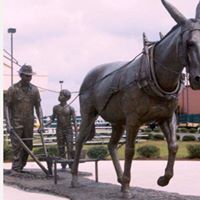What was Winston Churchill's reaction when he heard of Japan's attack on Pearl Harbor?
From the outset of his premiership, Churchill, half American by birth, had rested his hope of ultimate victory in U.S. intervention. He had established a personal relationship with President Roosevelt that he hoped would flower into a war-winning alliance. Roosevelt's reluctance to commit the U.S. beyond an association "short of war" did not dent his optimism. He always hoped events would work his way. The decision by Japan, Hitler's ally, to attack the American Pacific fleet at Pearl Harbor on Dec. 7, 1941, justified his hopes. That evening he confided to himself, "So we had won after all."
More Info:
www.rjgeib.com
What are your thoughts on this subject?
59 Comments










